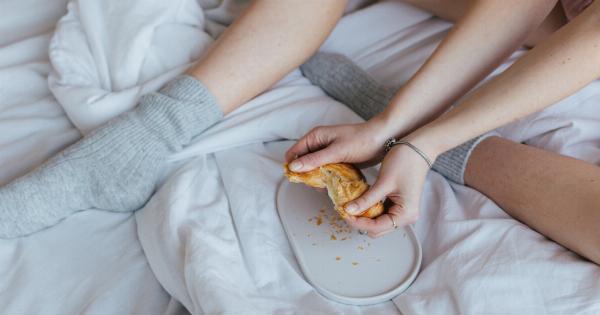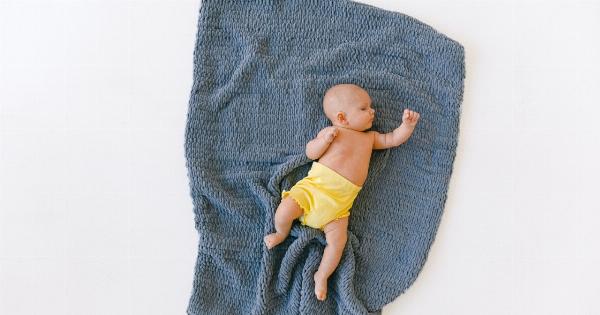Have you ever found yourself tossing and turning in bed without being able to fall asleep? While many factors such as stress and anxiety can contribute to poor sleep, your diet can also play a significant role.
Certain foods and drinks contain substances that can disrupt your sleep and lead to insomnia. In this article, we will discuss 15 foods that can keep you up at night.
Caffeinated Beverages
Everyone knows that caffeine is a stimulant that can make you more alert and energetic. If you consume caffeine before bed, it can interfere with your sleep and keep you up all night.
Additionally, caffeine can stay in your system for several hours, so it is best to avoid consuming any caffeinated beverages at least six hours before bedtime. This includes coffee, tea, soda, and energy drinks.
Spicy Foods
Spicy foods can be delicious, but they can also cause heartburn and indigestion, which can make it hard to sleep. This is because spicy foods contain capsaicin, which can irritate your stomach and cause acid reflux.
If you want to avoid sleepless nights, it is best to eat spicy foods earlier in the day and avoid them before bedtime.
Alcohol
While alcohol can make you feel sleepy and relaxed, it can also interfere with your sleep patterns. When you drink alcohol, it can cause you to fall asleep quickly, but it can also lead to frequent awakenings during the night.
Additionally, alcohol can affect your REM sleep, which can leave you feeling groggy and unrefreshed in the morning. It is best to avoid alcohol before bed if you want a good night’s sleep.
Fatty Foods
Fatty foods can be difficult to digest, which can lead to discomfort and indigestion. This can make it hard to sleep and cause you to wake up frequently during the night.
Additionally, fatty foods can cause acid reflux, which can also interfere with your sleep. If you want to avoid sleepless nights, it is best to avoid fatty foods before bed and opt for lighter meals instead.
Sugar
Sugar can give you a burst of energy, but it can also lead to a crash later on. This can make it hard to fall asleep and lead to restless nights.
Additionally, sugar can exacerbate underlying conditions such as sleep apnea and fibromyalgia, which can also affect your sleep. It is best to avoid sugary foods before bed and opt for healthier snacks instead.
Processed Foods
Processed foods are often high in sodium, which can disrupt your sleep. This is because sodium can cause you to become dehydrated, which can lead to thirst and frequent trips to the bathroom during the night.
Additionally, processed foods can be difficult to digest, which can also interfere with your sleep. It is best to avoid processed foods before bed and opt for whole foods instead.
Acidic Foods
Acidic foods such as tomatoes and citrus fruits can cause acid reflux, which can make it hard to sleep. This is because acidic foods can irritate your stomach and cause the contents of your stomach to leak into your esophagus.
This can lead to discomfort and indigestion, which can keep you up all night. It is best to avoid acidic foods before bed and opt for less acidic alternatives such as bananas and melons instead.
Red Meat
Red meat is high in protein, which can be difficult to digest. This can lead to discomfort and indigestion, which can interfere with your sleep. Additionally, red meat is often high in fat, which can also cause acid reflux.
It is best to avoid red meat before bed and opt for lighter protein sources such as fish and chicken instead.
Caffeine-Containing Foods
While we have already mentioned caffeinated beverages, it is important to note that caffeine can also be found in certain foods such as chocolate. If you want to avoid sleepless nights, it is best to avoid any foods that contain caffeine before bed.
Heavy Meals
Eating a heavy meal before bed can be a recipe for disaster. This is because your body needs time to digest the food, and if you go to bed too soon after eating, it can lead to discomfort and indigestion.
Additionally, heavy meals can cause acid reflux, which can interfere with your sleep. It is best to eat lighter meals earlier in the day and avoid heavy meals before bedtime.
Dairy Products
Dairy products such as cheese and ice cream can be difficult to digest, which can lead to discomfort and indigestion. Additionally, dairy products contain tryptophan, which can make you feel sleepy.
However, it is important to note that some people are lactose intolerant, which can cause gas, bloating, and diarrhea. If you want to avoid sleepless nights, it is best to avoid dairy products before bed and opt for lactose-free alternatives instead.
High-Fiber Foods
While fiber is essential for a healthy diet, eating high-fiber foods before bed can be a recipe for disaster. This is because fiber takes longer to digest, which can lead to discomfort and indigestion.
Additionally, high-fiber foods can cause gas and bloating, which can interfere with your sleep. It is best to eat high-fiber foods earlier in the day and avoid them before bedtime.
Nuts
Nuts are a great source of healthy fats and protein, but they can also be difficult to digest. Additionally, nuts are often high in calories, which can lead to weight gain if eaten in excess.
If you want to avoid sleepless nights, it is best to eat nuts earlier in the day and avoid them before bedtime.
Greasy Foods
Greasy foods such as fried chicken and French fries can be delicious, but they can also be difficult to digest. This can lead to discomfort and indigestion, which can interfere with your sleep.
Additionally, greasy foods can cause acid reflux and heartburn, which can keep you up all night. It is best to avoid greasy foods before bed and opt for lighter options instead.
Salt
Salt can cause you to become dehydrated, which can interfere with your sleep. Additionally, salt can raise your blood pressure, which can make it harder to fall asleep. It is best to avoid salty foods before bed and opt for low-sodium options instead.
Conclusion
While many factors can contribute to poor sleep, your diet can play a significant role. Avoiding the foods and drinks listed in this article can help you get a good night’s sleep and wake up feeling refreshed and energized.




























